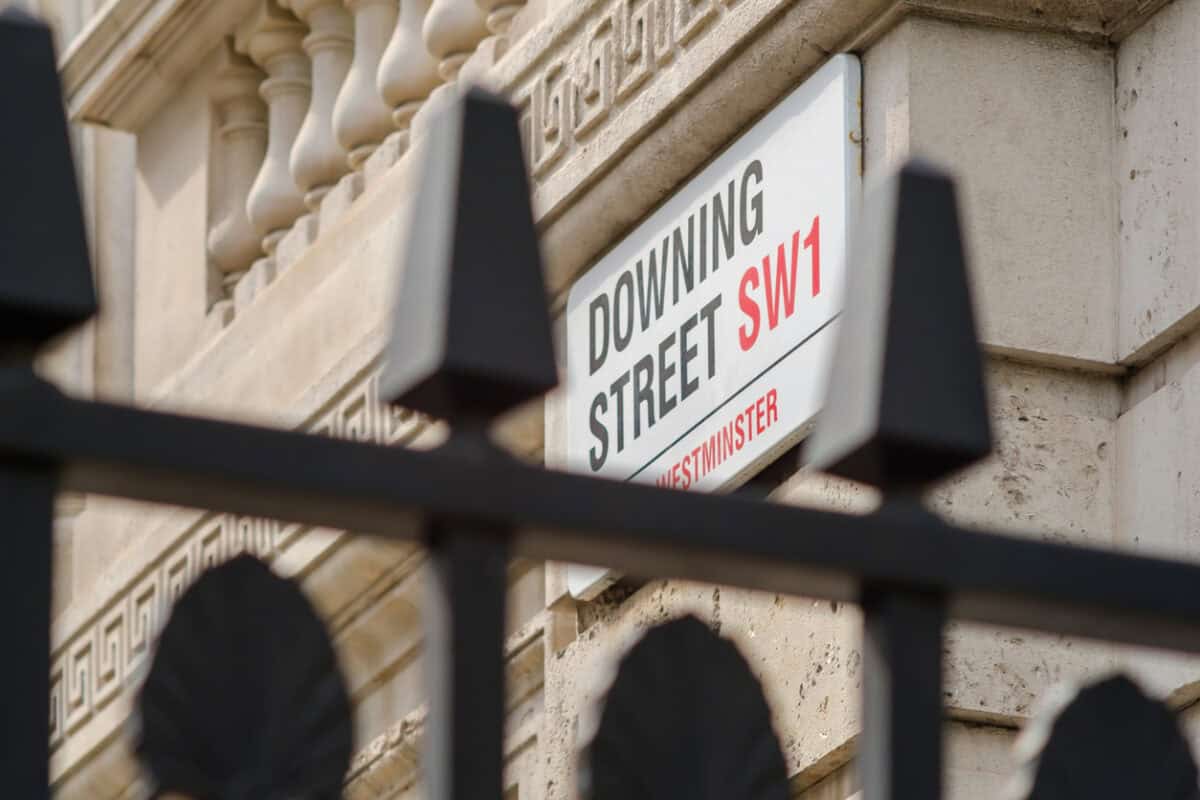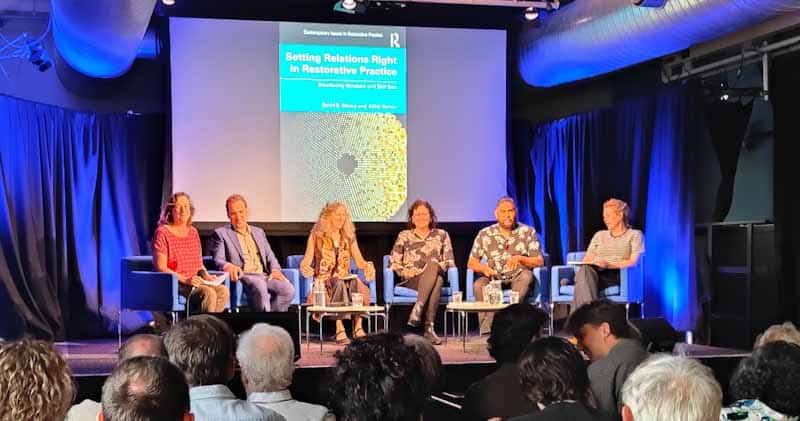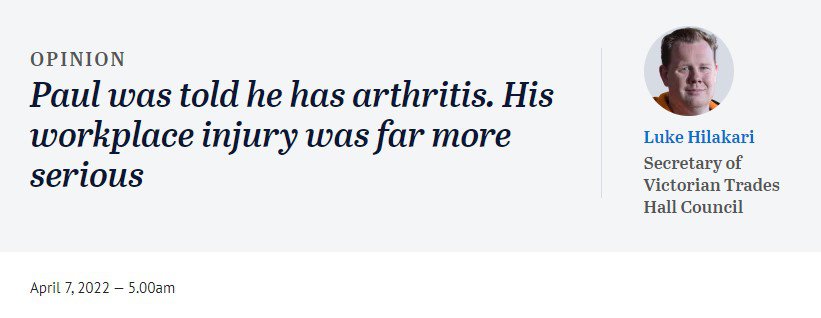On April 19 2024, United Kingdom’s Prime Minister Rishi Sunak made a major speech about welfare reform and mental health. The UK has a strong tradition of public health support through its National Health Service, which always seems to be underfunded and under-resourced but holds huge cultural and medical significance in the community. Mental ill-health has increased enormously over the last decade, as it has in countries like Australia, which is currently undergoing significant industrial relations reforms. However, what is missing from the PM’s speech and some of the subsequent analysis is that work is controlled by employers, so what does PM Sunak expect employers to do to help?
Category: rehabilitation
Applicability of Restorative Practices to all workplaces
Last week, a book called Setting Relations Right in Restorative Practice by David B Moore and Alikki Vernon (pictured above, second and third from the left, respectively) was published. The launch seemed full of the authors’ friends and colleagues, as well as social workers. Although Restorative Justice has been applied a little bit to resolve workplace conflicts, the discussion was dominated by examples in youth detention, correctional facilities, health care and public sector organisations. These are important industries, but what about the private sector in which most people work?
I asked the authors for some perspectives on workplaces outside of the types already discussed?
Below is the response from Moore and Vernon.
Plenty of sparkle but little spark
The latest awards night for WorkSafe Victoria achieved its scope – present awards for people and organisations who do occupational health and safety (OHS) well. Some categories are for extraordinary effort, achievements or innovation, and winning any award from WorkSafe is important to the winners, but some were flat.
WorkSafe Victoria awards were hit and miss
Last week WorkSafe Victoria finally held its awards night for 2021. The finalists were deserved winners, but compared to previous pre-COVID awards nights, this one was sedate and sometimes flat. SafetyAtWorkBlog will be looking at some of the issues raised by the awards ceremony in a series of articles this week.
The crowd was much smaller than in previous years. This could have been due to the event having been postponed, I think twice, but it could also indicate a lower importance for this type of event. Many of the usual attendees seemed missing – occupational health and safety (OHS) and workplace relations law firms, major companies, industry associations and CEOs, and those who are not finalists but appreciate the opportunity to network with significant players in Victorian OHS.
Confrontation with PM involves workers’ compensation
Last week Australian media covered a confrontation between Prime Minister Scott Morrison and a pensioner, Ray, in Newcastle. Most of the coverage focused on Ray’s criticism of the commitments of the Morrison Government to support and reward those citizens willing to “have go”. The full 5-minute video provides a much better context to the man’s complaints than do the short edits on most media bulletins. That context seems to include concerns about workers’ compensation and the processes of the Dust and Diseases Board.
Should heartlessness be the status quo?
On April 7, 2022, prominent trade unionist Luke Hilakari had an opinion piece published in The Age newspaper titled “Paul was told he has arthritis. His workplace injury was far more serious”. Hilakari told a story, familiar to many, of one man’s journey from workplace injury to impecunious hardship.
The story is tough to read and full of injustices, but the political point of the article is lost. The Victorian Government has been provided with a report that could reduce the bureaucratic and surveillance challenges faced by Paul, but the system itself will not change.
Banyan Health Group responds
Earlier this week, I paused an article on corporate burnout which used a media release from the Banyan Health Group as the catalyst. The group chose not to respond to some challenging questions but later reversed their position. Below are the responses of Ruth Limkin – CEO of The Banyans Healthcare Group to those questions. I thank Ruth and her team for their support
SAWB: The media release mentions chronic stress risk factors of “increased absenteeism, disconnected employee relationships, heavy workload and tight deadlines” and “longer hours”. The World Health Organisation has written that “Burn-out refers specifically to phenomena in the occupational context and should not be applied to describe experiences in other areas of life”. What can an executive manager do to reduce or eliminate these factors and thereby reduce the need for personal psychological interventions? Should the businesses change the way they do business and change the expectations that they place on executives?






